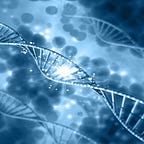Comparative Antimicrobial Activities of Solvent Extracts and Silver Nanoparticles Synthesized from Seeds of Areca catechu L. | Chapter 02 | Recent Advances in Biological Research Vol. 2
The present study was carried out to screen phytochemicals like carbohydrates, terpenoids, resins, saponins, tannins and alkaloids in the seed extract of Areca catechu by standard protocols and antibacterial activities of seed extract as well as silver nanoparticles prepared from seed extracts. The medicinal properties of plants have been investigated in the recent scientific developments throughoutthe world, due to their potency against several disease, minor side effects and economic viability. Several compounds widely distributed in plants which have been reported to exert multiple biological effect, including antioxidant, free radical scavenging abilities, anti-inflammatory and anti-carcinogenic. Nanoparticles are synthesized using plant materials. The various phytochemicals present within the plant result in effective reduction of silver salts to nanoparticles. The characterization of silver nanoparticles was studied by using FTIR, SEM and UV- Visible spectrophotometer. Antibacterial activity was conducted with aqueous, methanolic and AgNO3 seed extracts against six bacterial species viz., Salmonella typhi, Klebsiella pneumoniae, Staphylococcus aureus, Escherichia coli, Pseudomonas aeruginosa and Bacillus subtilis by agar well diffusion method. The seed extract showed positive results for carbohydrate, proteins, alkaloids, glycosides, terpenoids, tannins and saponins. The colour of the solution after treating with AgNO3 was changed from light brown to dark brown confirmed the reduction of silver ion in presence of seed extract and formation of silver nanoparticles. Maximum absorption was observed at 400 nm and the size of silver nanoparticles produced was oval in shape with the diameter of 553–610 nm. Pseudomonas aeruginosa and Salmonella typhi were found to be the good organisms resistant against areca nut seed extracts while others were showed intermediate effects. This study suggest that A. catechu nut extract can be a potential source for developing antibacterial agents against Gram positive bacteria which are commonly found on human oral cavity and responsible for dental caries. This present study also supports the use of natural products for medication as antibacterial agents found in plant extract, which exhibits antibacterial activity to some opportunistic oral bacteria, we have some reservations towards the side effects that need to be studied and evaluated more thoroughly. The results highlight the traditional use of “Areca nut” and some scientific validation of the claimed biological antimicrobial activity in vivo.
Biography of author(s)
Dr. Rama Bhat P.
Prof. & Head, PG Department of Biotechnology, Alva’s College, Moodbidri — 574 227, Karnataka, India.
Coordinator of Internal Quality Assurance Cell (IQAC),
Member, Tree Authority, Department of Forest and Environmental Sciences, Govt. of Karnataka, India.
Read full article: http://bp.bookpi.org/index.php/bpi/catalog/view/45/206/360-1
View Volume: https://doi.org/10.9734/bpi/rabr/v2
